July Reads
Talking plants, motherhood, illness and identity, friendship, surveillance states and a dystopian prison system.

Welcome back to Martha’s Monthly for my July reads! I had some health drama in July so didn’t get to read as much as I would have liked, but I still managed to read 8 (mostly) great books. Here they are, reviewed in all their ‘buy, borrow or bust’ glory.
My first read of July was ‘Tomorrow and Tomorrow and Tomorrow’ by Gabrielle Zevin. This book has been raved about widely, I was excited to read it and become part of the conversation. It was good, but it did not knock me out of the park like I expected it to. ‘Tomorrow’ is a story of friends who come together to become creative partners in the world of video games. Their success brings them fame, joy, freedom along with tragedy, conflict and hardship. What the book does incredibly well is convey a sincere and humane portrayal of growing up, with the challenge of taking friendships from childhood to adulthood and how difficult life can be. The tragic nature of how their lives unfold is touching to read, because it is a stark reminder of how fragile human life can be. The portrayal of disability within the story was also touching to read, discussing a very raw and sincere take on how hard it is to be sick in our ableist world. Sam struggles with significant denial about how much his injury impacts him. He withdraws from communicating and articulating his disability to avoid confronting the role it plays in his life. The relationship between Sam’s challenges in the real world juxtaposes poetically the liberating freedom he and Sadie create in the gaming world. Sadie and Sam strike out to create alternative worlds where the challenges of the real world do not exist.
However I do have some critiques. The beginning felt significantly more compelling than the end, which is perhaps attributed to the constant narrative jumping. This sometimes created genius foreshadowing, and other times a slightly choppy and difficult to follow timeline. I felt that this lack of timeline concentration took away the readers' opportunity to get deeply emotionally invested in the protagonists. But overall, I can appreciate why this is so widely liked, it’s easy, relatable and genuine. The difficult landscape of friendship is something everyone can identify with. ‘Tomorrow’ is engaging and easy to become enamoured with. I’d say this is a borrow. It is so widely loved and there is a reason for that.
Next, I read ‘When I sing, Mountains Dance’ by Irene Solà. ‘When I sing, Mountains Dance’ is a beautiful and lyrical piece of writing that reads like a love letter to all nature and humanity that live in the Pyrenees. The book explores multiple perspectives of all living things located on a mountain in the Pyrenees. It looks at the interconnection between nature and the people on this mountain. We follow the generational perspective of one family, as well as from various plants and animals. I really enjoyed how the different points of view were not all human, bringing in an interesting and playful exploration of life. It housed stunning prose and created a wonderful and fascinating atmosphere. If you don’t like lyrical writing you probably wouldn’t warm to this, but those who do, will eat it up. Personally, this is a buy for me. I had great fun reading it and it is like nothing I have ever come across before.
‘A Little Luck’ by Claudia Piñeiro was a new release this month, and one I highly anticipated. After reading her novel ‘Elena Knows’ last year and deeply loving it, I was very excited for her next book. ‘A Little Luck’ is an absolutely sensational piece of literary fiction, exploring the return of a woman who fled suburban Argentina 20 years ago due to a dreadful accident. She has changed everything about herself; including her name and even her eye colour. As we follow her journey back home, we don’t know why she left. But her fear of returning and the weight of her anxiety we feel as the reader tells us she ran away from something that has haunted her since. The book explores the delicate theme of motherhood within coincidence and luck. ‘A Little Luck’ is slow to reveal its mysteries, but in doing so we are enveloped in such a strong story of memory, tragedy and love. A lack of knowing where the story is heading is where the beauty of it lies. It is a really impressive work, full of heavily suspenseful and engaging writing. This is a hands down buy for me, such a powerful and poignant novel about selflessness and what we understand it to be. There is real hope and beauty in here woven within such masterful and emotional storytelling. The ending moved me to tears.
Next I read ‘Sharp Objects’ by Gillian Flynn. Flynn is very popular and this read has been on my radar for a while. Upon choosing this book I really wanted a thriller; something easy and suspenseful. And it completely fulfilled that purpose. ‘Sharp Objects’ was slightly horrifying and I’m not sure I enjoyed how horrifying it was, but it was gripping. ‘Sharp Objects’ was Flynn’s debut, which is evident in her simplistic writing. The story lines and characters felt very surface level and undeveloped. For such an intense murder mystery, I felt that we could’ve been given slightly richer material to dig into a little deeper, it was a bit predictable. Additionally, the mass of disturbing details in the plot line of this book did leave a slight sour taste in my mouth. However despite my criticisms, Flynn has a talent for writing suspense incredibly well. If you’re searching for a typical twisted murder mystery, this would definitely be it. I’d say this book is a borrow. It does exactly what it says on the tin, not every book can be a complex masterpiece.
After a lot of literary fiction this month, I wanted to switch it up and read some dystopian and political fiction, so I chose ‘Chain-Gang All-Stars’ by Nana Kwame Adjei-Brenyah. This was a debut release this month and I was ecstatic to see it arrive in the post. I can confirm it lived up to expectations. ‘Chain-Gang’ is a gladiator style action sports program that prisoners can opt to partake in to compete for the ultimate prize; freedom. It is live streamed and watched by millions, both a deeply popular and deeply controversial profit-raising program. Prisoners have to murder each other in live combat in order to advance to different tiers of the game. If you can murder enough, you may be free. Within the prison system in this book, technology has advanced torture in a dramatic way, driving prisoners to madness until they decide that the option of dying in this competition is the better choice. This book is violent and emotional. It is such a creative and imaginative approach to addressing and adding to the conversation of prison reform and the abolition movement; undertaken so eloquently, nuanced and full of immense energy. It has such interesting multiple point of views, foreshadowing and unrelentingly high stakes. I enjoyed this immensely. I described it to a friend as the perfect cross between The Hunger Games, Orange is The New Black and Big Brother. This book is a total buy, one I think that will gain significant popularity and notoriety in the years to come. I really look forward to any future work from this author, because the imagination and world building from a debut novel was magnificent.
My next read of the month was the memoir ‘Between Two Kingdoms’ by Suleika Jaouad. I think memoirs (not usually celebrity or political ones) are such an under appreciated genre. They are one of my favourite genres because of how powerful and emotive they can be. We can learn so much from ordinary people writing about their experiences and what they learn from them. ‘Between Two Kingdoms’ is the story of Suleika getting diagnosed with leukaemia at the age of 22, with a 35% chance of survival. The life she had imagined after university completely implodes as she loses her health, job, apartment and independence. She chronicles her experience of three and a half harrowing years. It is touching, emotional, perceptive and sincere. Once cured, she is faced with the much more intimidating challenge of how to reenter the world and live again. How can she reclaim a life she hadn’t had much of a chance to establish in the first place? She embarks on a road trip visiting people from all walks of life who live with all sorts of chronic illnesses and challenges, finding out how these events have shaped their life. I absolutely flew through this memoir. It is compulsively readable and extremely well written. It is fair to say I read this so quickly because of how closely it resembles my current life. Despite our illnesses and environments being so different, the essence of what it is like to be severely chronically unwell as a woman at such a young age is the same. How lonely, soul crushing and relentless being so sick for years and years on end is an experience difficult to articulate to those who have never been unwell in this way, but she did it so flawlessly well.
Because ‘Between Two Kingdoms’ was a deeply personal read, I am aware I may have a biassed opinion as I felt so connected to it. However, I would argue this is one of the best memoirs about illness I have read, communicating so effectively the experience of what it is like to be unwell in our society for a prolonged period of time, with the life changing and irreversible impact that can have on you. As much as there is immense value in reading about what it was like during her treatment against cancer, I found the writing surrounding ptsd, trauma, loss of identity and confusion about how to live life again, after just surviving for so long, the most compelling. The thought of life after illness is more intimidating and frightening than any able bodied person could imagine. Long term illness and isolation completely derails your sense of self and position in the world, and it is something that is incredibly challenging to get back, especially when you are so traumatised from what has happened to you. I am in this position right now and I can assure you, it’s very hard. For anyone who wants a deeper understanding of the psychological and social impacts of someone fighting chronic and long term health conditions, I would recommend this. This is a hands down buy, I loved it fiercely.
Next I read ‘Lost City Radio’ by Daniel Alarcón. ‘Lost City Radio’ is the story about a trio of characters in a nameless Latin American country upended by civil strife. We meet Norma, who hosts a radio show called ‘Lost City Radio’ that reads out the names of thousands of people who are missing as a result of the war. It has amassed a huge following, with hope that if everyone listens, many will be reunited with their families and loved ones. Her husband, Rey, who has a complex and colourful relationship with resisting the state, has been missing for over a decade. Finally we meet Victor, a boy who has fled the jungle and comes to Norma’s radio show in search of the missing from his village. This story details the human cost of civil war, and how the victims are the people whom the revolutions ostensibly aim to serve. The story addresses the issue of how can a country move forward when there has been so much death and destruction that has devastated people's lives. The ‘Lost City Radio’ show is a testament of hope and what people will imagine in order to fill the holes that have been created. The embodiment of this conversation being a radio show for missing people was a fitting avenue of exploration. This initially unassuming novel blossomed into something much more poignant as we learnt the history and connection between these three characters and their differing experiences of the conflict. The story taking place in an unnamed South American country in the aftermath of a civil war is significant as this is a story has happened again and again. Populations continue to experience disappearances, curfews, unlawful imprisonment and torture long after the conflict is supposedly over. I really enjoyed this, I had some slight critiques on the prose and characterisation, but overall I’d say this book is a borrow. I found it in a bookshop and I had never heard of it before. Which means I’m going to talk about it, because I think it was quite good.
Finally, my last read of the month was ‘Minor Detail’ by Adania Shibli. This was a pretty bleak way to see out July. ‘Minor Detail’ describes itself as a meditation on war, violence and memory. The story begins during the summer of 1949, one year after the war that the Palestinian’s mourn as the ‘Nakba’ which led to the displacement and expulsion of more than 700,000 people. The Israelis celebrate this as the ‘War of Independence’. The book consists of 2 novellas, which focus on the same bleak event. Israeli Soldiers capture and rape a young Palestinian woman, and kill and bury her in the sand. A quarter of a century later, a woman becomes fascinated with this ‘minor detail’ of history and sets off to find out more. I felt the content and execution of this story did not line up, with the premise being a lot more fascinating than the story itself. Merit has to be acknowledged for the subject matter, for using this specific event to tell a much bigger story on the conflict and the impact it has had on Palestinians. The prose and the structure was a choice that I felt just didn’t work. However, the ending was fitting and provoked reflection on what has and hasn’t changed. I think I expected something different out of this story. I sadly might call this a bust because I wouldn’t recommend it. Since this disappointment, I’m on the look out for other fiction stories which touch on one of the world's most enduring and complex conflicts. Previously I have read ‘Against the Loveless World’ by Susan Abulhawa on the conflict, which I loved and would absolutely recommend.
And that concludes my July reading! I have already mapped out my August reading and I’m looking forward to getting into it. I have just started ‘Venomous Lumpsucker’ by Ned Beauman. Super weird, but very funny. August also marks the release of ‘The Booker Prize’ Longlist which is an interesting way to find new fiction reads.
Happy Reading! Love Martha




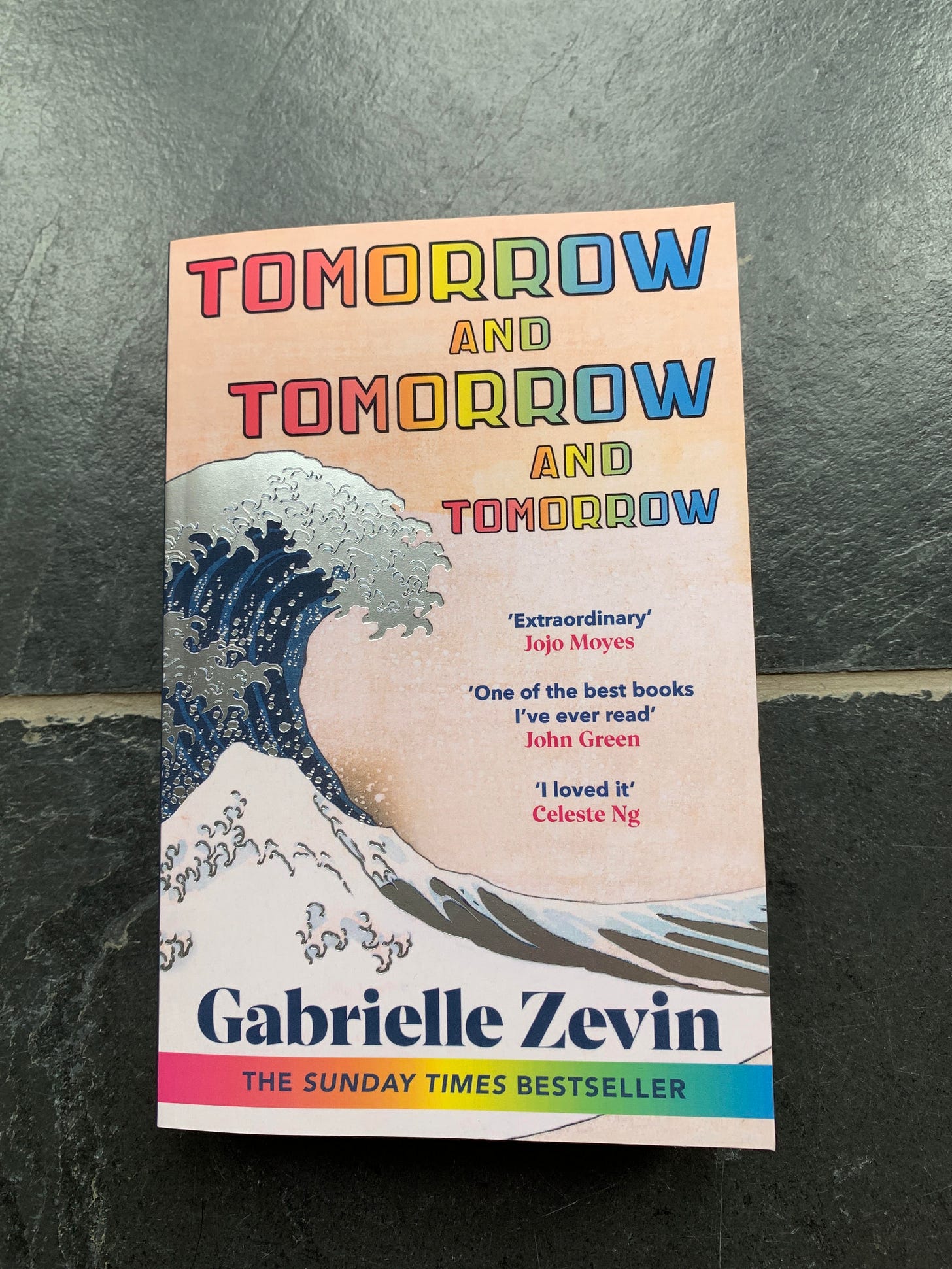


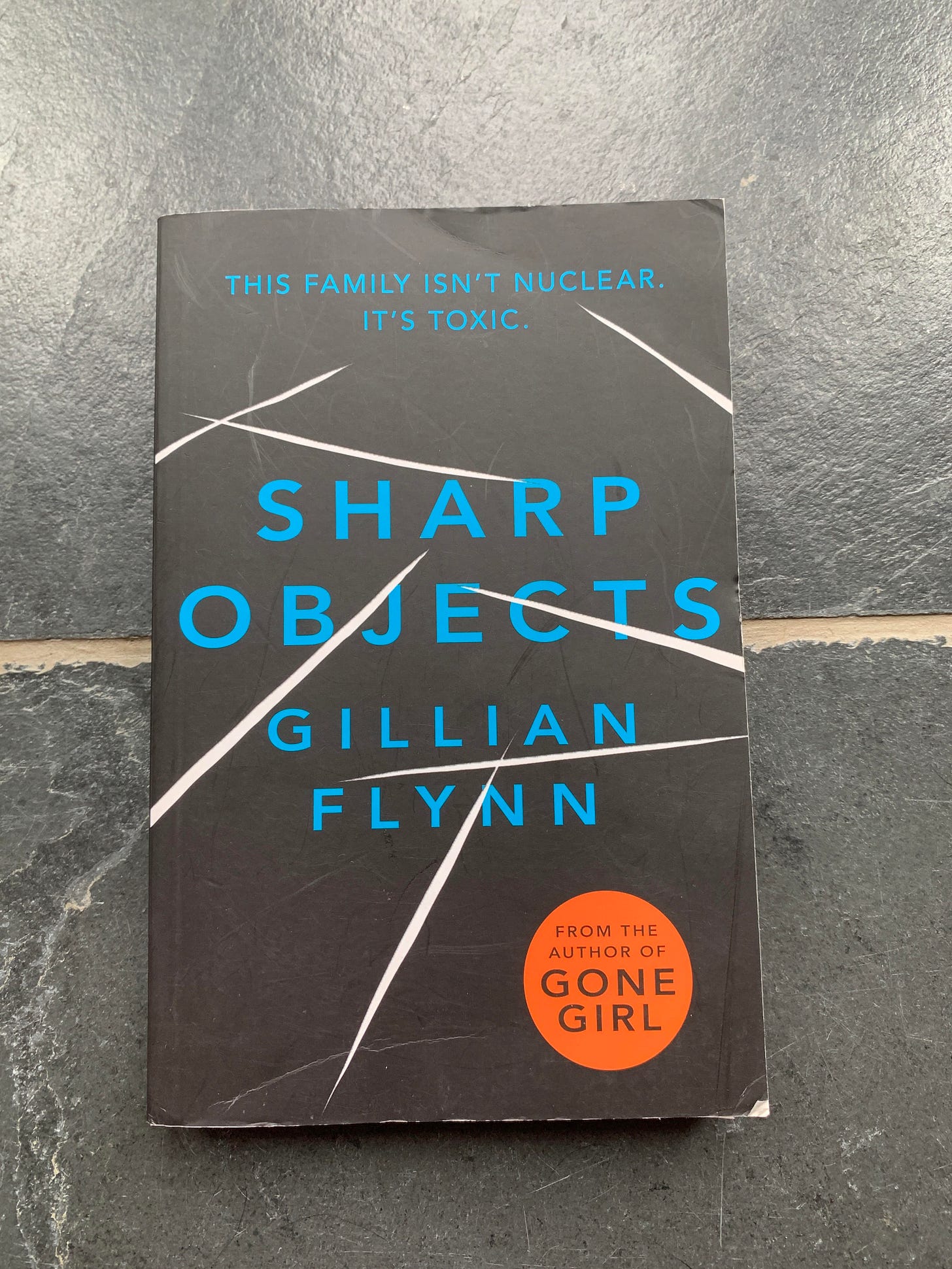

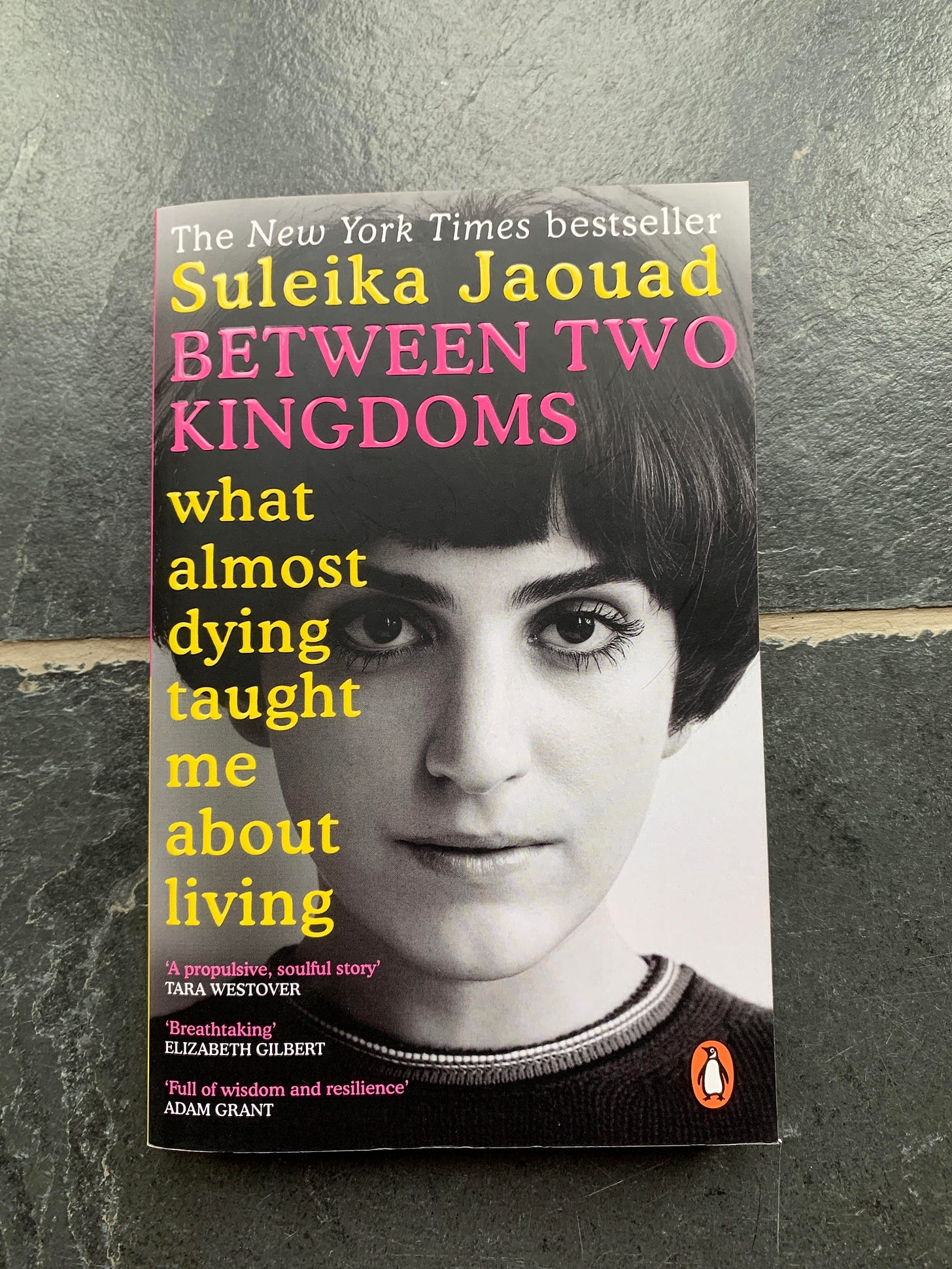
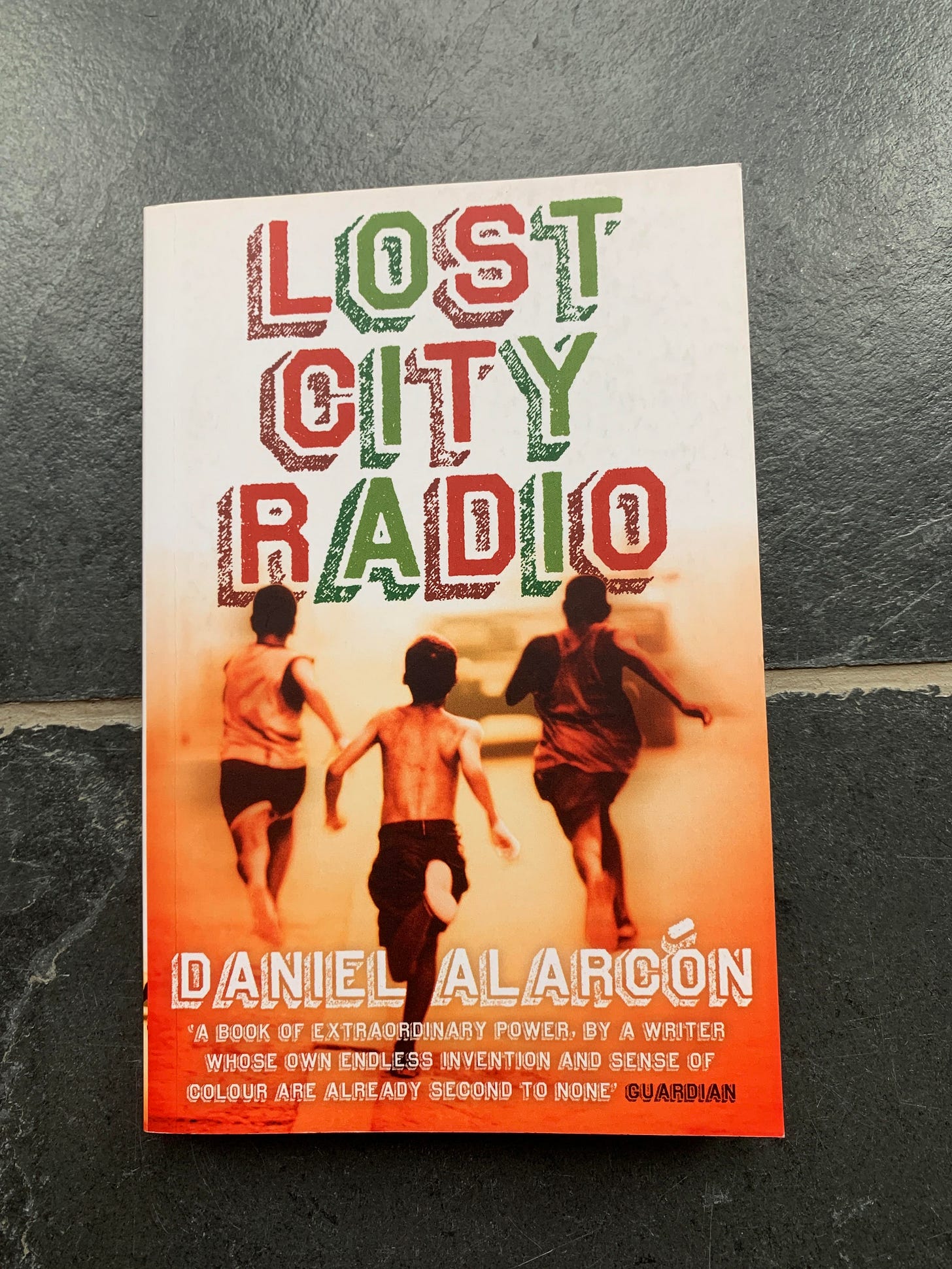
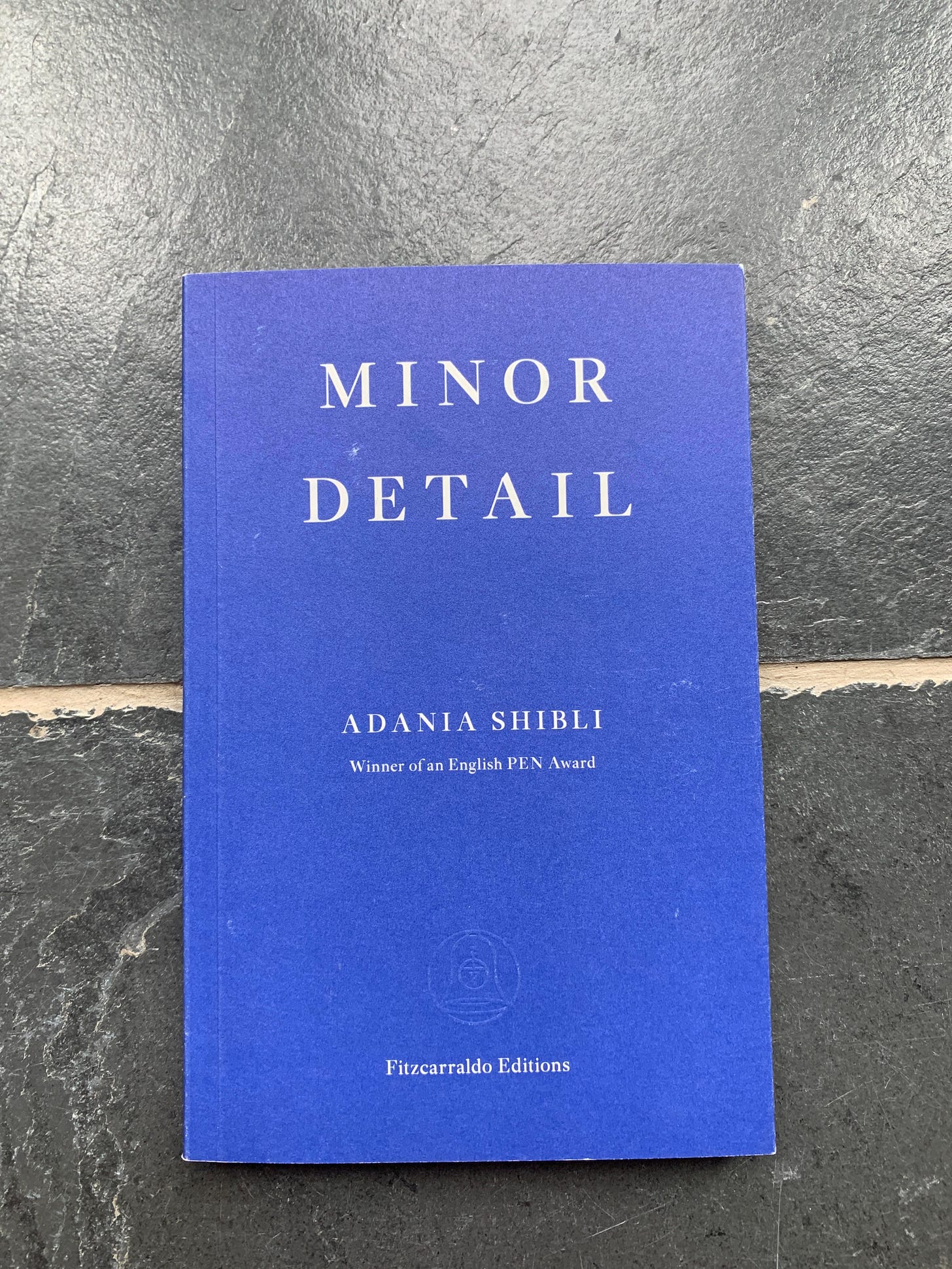
Chain Gang All Stars needs to be so much more widely read! I think about it constantly and read it almost a year ago at this point. Added the first two to my list—had not heard of either!!
Having spent a year in the shadow of the Pyrenees, I’m looking forward to reading When I Sing, Mountains Dance. The idea of narrating the story from various non-human perspectives, like a cloud or a bear, is truly fascinating. Thanks for the recommendation! 📖☁️